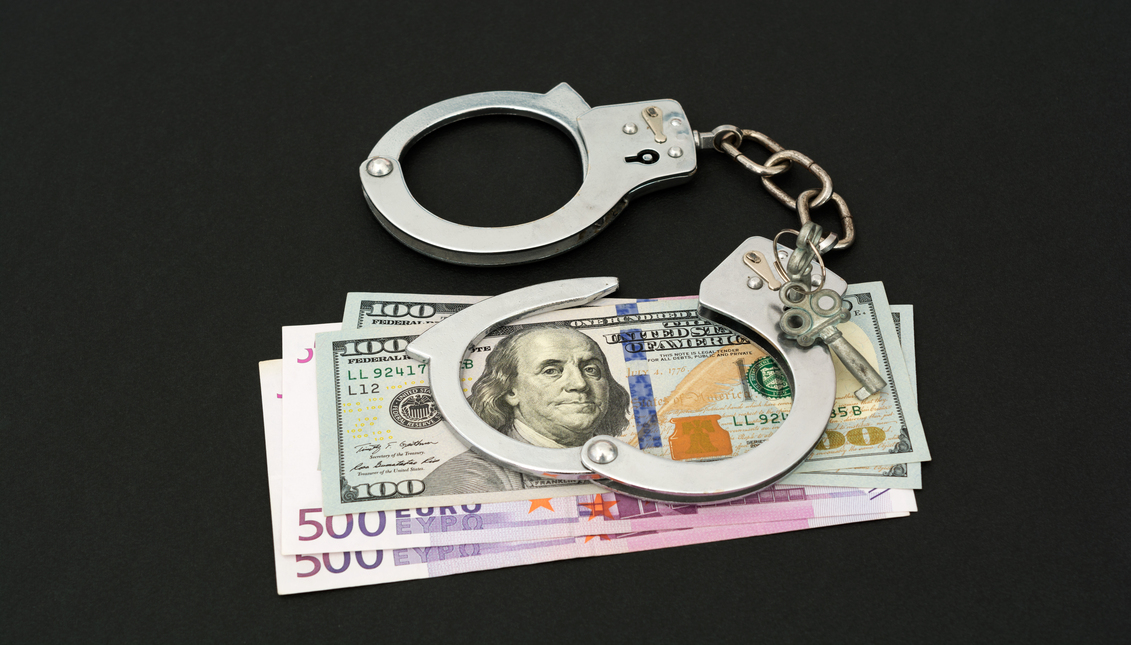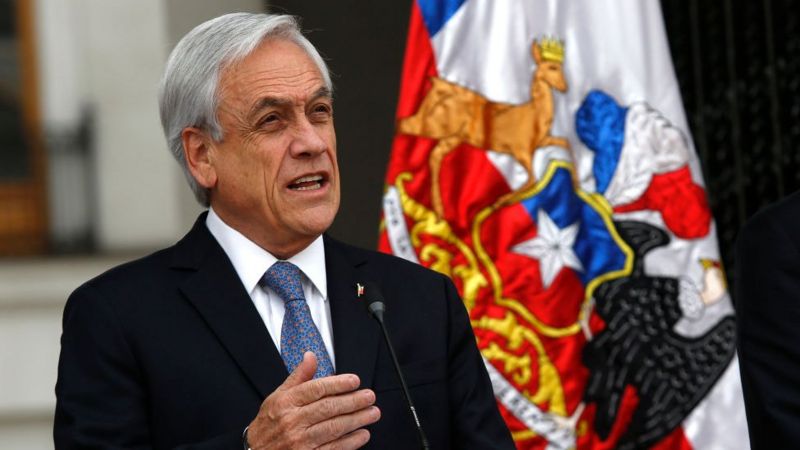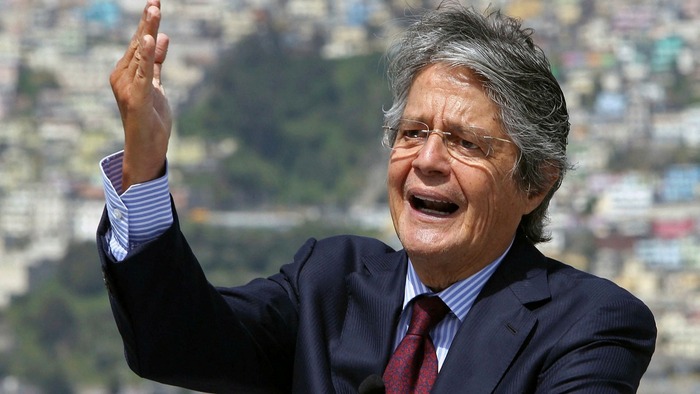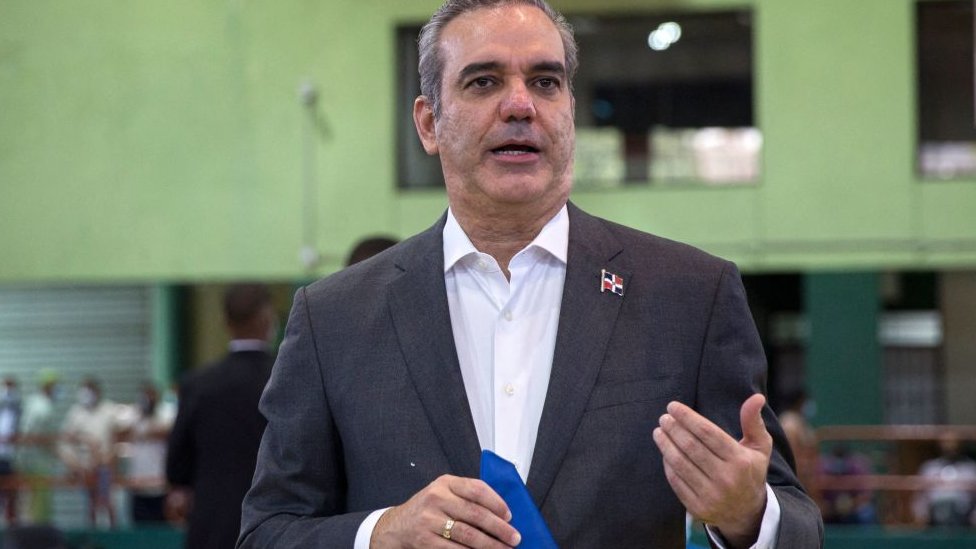
The Pandora Papers: Presidents and former leaders of Latin America sprinkled throughout
Through a journalistic investigation, millions of documents and files were leaked to expose the "secret" investments of different personalities in the world.
The International Consortium of Investigative Journalists (ICIJ) has carried out one of the world's most important tax investigations in recent history. The project, which involved more than 600 journalists from 117 countries, and filtered through about 12 million documents and files analyzing the wealth of world leaders, politicians, athletes, artists and other billionaires, uncovering hidden fortunes and their movement to help growth and avoid taxes.
Many of those involved are calm, saying they did not operate outside the law, but the truth is that the information found in 6.4 million documents — with more than a million emails, half a million spreadsheets and nearly three million images — reveal how, in spite of the economic crisis caused by the pandemic, the fortunes of the most powerful kept growing.
There are those international territories in which creating companies is simple and lend themselves to paying lower taxes than others. They are characterized by having laws that make it difficult to identify company owners and by charging low taxes. The most recognized worldwide are the British territories in the Caribbean — the Cayman Islands and the British Virgin Islands — as well as countries such as Switzerland and Singapore.
Although this type of financial "move" is not considered illegal, using a complex network of companies to move money is one of the strategies used by organized crime to launder profits. However, with the goal of not turning this investigation into a “witch hunt,” it is important to note that, beyond wanting to hide their assets from the respective tax authorities, some individuals seek to protect their assets from criminal attacks and unstable governments.
The chapter on Latin America highlights 11 former presidents and mentions three current leaders. Although several of them affirm that they have not done anything against the law, the investigation leaves them looking bad and in an uncomfortable position before the tax authorities of their country, and above all, in the court of public opinion.
Emilia Díaz-Struck, ICIJ coordinator for Latin America, told BBC Mundo that when it comes to politicians, especially if they occupy positions of power in their countries, these are people who can alter regulations by benefiting from “offshore” transactions (to other nations), actions that can seriously affect citizens in terms of taxes, ethics and transparency.
Sebastián Piñera, the president of Chile, made a large part of his fortune in the 1980s thanks to his investments into a credit card company, the LAN airline, a television channel and a soccer team (Colo Colo).

The business mentioned by the ICIJ in its investigation has to do with the sale and purchase of the Dominga mining project by the Piñera family, in which they were the largest shareholders and whose sale operation, according to the data collected, was carried out in the British Virgin Islands in 2010. At the time Piñera was completing his ninth month in office.
The sale of the mining company to businessman Carlos Alberto Délano, a childhood friend of the Chilean president, was made for a value of $152 million, a payment that would be settled in three installments. The payment of the last installment (worth $9.9 million) was subject to the establishment of an environmental protection zone that depended on the Piñera government.
What is known so far is that environmental protection policies were not implemented, but it is unclear whether these measures would have suspended the mining project, whose permits are still pending, or if the payment was made.
Through a statement, Piñera maintained that he has not participated in the sale process, nor has he received information about it. Also, the Chilean government assured that the President has not participated in the administration of any company since before assuming his first presidency (more than 12 years ago).
"The aforementioned events were already investigated by the Public Ministry and the Courts of Justice during 2017 and the Prosecutor's Office recommended ending the case due to the lack of crime... and the lack of participation of the president," the letter ends.
The Pandora Papers revealed documents that exposed the current president of Ecuador, former banker Guillermo Lasso, with links to 10 offshore companies and several trusts in Panama and the United States, specifically in South Dakota and Delaware.

According to the investigation, Lasso authorized in 2017 the transfer of companies held by two Panamanian private interest foundations, Bernini and Barberini, to two trusts in the U.S. — Bretten Trust and Liberty US Trust.
Lasso responded to the ICIJ arguing that he does not have any commercial relationship of any kind with the North American trusts, maintaining that he has never breached Ecuadorian law, which prohibits candidates and public servants from being part of “offshore” companies.
Likewise, the president separated himself from 10 companies and foundations of private interest located outside of Ecuador, and that have already dissolved, on which the president assured that their use was legitimate and that none was related to his public function.
A los ecuatorianos, en relación a Pandora Papers.
— Guillermo Lasso (@LassoGuillermo) October 4, 2021
Cumplo con lo expuesto en la ley, todos mis ingresos han sido declarados y he pagado los impuestos correspondientes en Ecuador. Siempre con transparencia y frontalidad ante el pueblo ecuatoriano. pic.twitter.com/1oN5nuXNpj
The president of the Dominican Republic since 2020, Luis Abinader, has been linked to the Pandora Papers. This is thanks to his title of general director of Grupo Abicor, a family consortium that includes a construction and real estate firm, a cement company and a private university, before becoming president.

In the company of his brother and his sister, Abinader is listed as the owner of Littlecot Inc. and Padreso S.A., two companies created in Panama in 2011 and 2014, respectively. These two “offshore” assets, added to at least seven other companies of the same type, were declared by the Dominican president as a “revocable trust” and a family type.
Abinader defended its ties to the assets abroad, arguing that until recently, the Dominican Republic had not issued corporate laws that would prevent local companies from carrying out these types of actions outside its territory.
The investigation carried out in Colombia was held by the newspaper El Espectador and the Connectas portal, which included 588 names of native and legal persons listed as owners of offshore companies.
According to the Pandora Papers, former presidents Cesar Gaviria and Andrés Pastrana, as well as celebrities, millionaires, ambassadors, former congressmen and even the current director of Dian — the entity in charge of collecting taxes in Colombia — are linked to these types of operations.
Gaviria and some close relatives, for example, were related by ties to companies created in Panama and the British Virgin Islands. In the company of his brother, Luis Fernando, the former president and director of the Liberal Party appears as one of the directors of the hydrocarbon company MC2 Internacional S.A. In the foundation of the company, there were shareholders associated to what the ICIJ has called “shell companies.”
MC2 S.A.S. ESP. was established in 2006, and a year later, the former president began to appear as its majority shareholder. Although, according to the investigation by El Espectador and Connectas, the Gaviria brothers have remained at the forefront, ensuring that the financial and tax information of the Colombian citizens are protected by the "documentary reserve."
In the case of Andrés Pastrana, the other ex-president named in the investigation, both he and his wife Nohra Puyana are listed as the owners of the Panamanian company Vanguard Investment Inc, of which the Colombian firm Salatina Puyana y Cia S. in C. is a shareholder, owned by Pastrana.
Transparente y dentro de la ley.
— Andrés Pastrana A (@AndresPastrana_) October 4, 2021
Una cuenta de mi familia, registrada y declarada legalmente en el Banco de la República y la @DIAN, aparece en los llamados #PandoraPapers.
Como expresidente, está sujeta al permanente escrutinio de múltiples jurisdicciones desde hace muchos años.
The ICIJ report indicates that this information was kept secret until 2016 using the figure of "bearer shares," which, thanks to the changes in the regulation, had to be updated with the real name of the company that owns the actions.
Pastrana, through a response to the media that led the investigation in Colombia, explained that his objective was, on the one hand, "to make Colombian investments abroad" and, on the other, through Vanguard Investment, to seek to convert pesos into dollars to "internationalize a heritage," It's information he said that was always available to the public.
RELATED CONTENT
Another relevant name that stood out in Colombia in the Pandora Papers report was that of the director of the National Tax and Customs Directorate, Dian, who through his Twitter account has justified what for him are complaints without legal basis.
#ComunicadoALaOpiniónPública
— Lisandro Junco (@LISANDROJUNCOR) October 3, 2021
Ante los ataques a mi honra en el informe del periódico @elespectador y @ConnectasOrg, como un servidor público que SIEMPRE ha actuado correctamente, y como deber con el país, me permito informar: pic.twitter.com/NotUcCJxMh
Another of the former Latin American presidents involved with the Pandora Papers is Pedro Pablo Kuczynski, from Peru, who was the Minister of Economy in the government of Alejandro Toledo during the creation of the offshore company, Dorado Asset Management Ltd.
The company, whose objective was to offer financial advisory and investment services, ceased operations in March 2019, after being founded in the British Virgin Islands in 2004 and subsequently moving, 10 years later, to Peru.
The most striking aspect of the ICIJ investigation's Peruvian chapter were the links of these offshore companies to the corruption of Brazilian construction firm, Odebrecht.
In 2018 Kuczynski acknowledged having sold his house to Dorado to avoid paying taxes in the United States, after having renounced to his American citizenship. In 2019, the Peruvian Prosecutor's Office verified that the money that had been paid for the acquisition of the property came from the company Westfield Capital Ltd, also owned by the former president, and which was linked as one of the two companies used by the official to receive payments from Odebrecht. The illegal actions forced him to resign as president of the country in March 2018.
He is currently under house arrest.
Among the 3,047 records of people who have used tax havens to move their fortunes, Julio Scherer, former legal counsel to President Andrés Manuel López Obrador, and the current Secretary of Communications and Transportation, Jorge Arganis, stand out. They are accompanied by the renowned Mexican businessmen Germán Larrea and María Asunción Arámbula.
Within the list revealed by Pandora Papers for Latin America, about 100 politicians and officials from 18 countries are included. Some of the most relevant names are those of former presidents Porfirio Lobo from Honduras, Alfredo Cristiani and Francisco Flores from El Salvador, Horacio Cortez from Paraguay, as well as Juan Carlos Varela, Ricardo Martinelli and Ernesto Pérez from Panama.
For their part, in Brazil, personalities such as Paulo Guedes, Minister of the Economy, and Roberto Campos, president of the Central Bank, have emerged. In Argentina, the name of Mariano Macri, brother of former Argentine president Mauricio Macri, appears connected to an offshore company based in Belize, which until now had not officially appeared before the Federal Administration of Public Revenues.
- The King of Jordan's £70 million spending on U.K. and U.S. property through secretly-owned companies.
- The hidden participation of the main Azerbaijani family in real estate deals in the United Kingdom for more than 400 million pounds.
- The Czech Prime Minister did not declare an offshore investment company used to buy two French villas for £12 million.
- The family of Kenyan President Uhuru Kenyatta secretly owned a network of offshore companies for decades.
- The files expose how some of the world's most powerful people, including more than 330 politicians from 90 countries, use secret offshore companies to hide their wealth.
According to the International Monetary Fund, the use of tax havens costs governments around the world up to $600 billion in lost taxes each year. Something that for now, does not seem to be close to changing. Although it is considered unethical, there are no laws that prevent these “offshore” operations from being carried out.
A similar case was presented in 2017 with the Panama Papers, where several world figures had also been tied to tax havens, an investigation that so far did not go beyond the media impact of the moment.
For Carlos Eduardo Huertas, director of Connectas, a portal that evaluated the information for Colombia, it should be “the authorities who have to determine whether or not there is an irregularity, but precisely as the highest heads of the executive they should be the first to set an example of transparency and not having spaces that imply that there is some secrecy in the management of their accounts and their personal finances.”











LEAVE A COMMENT: